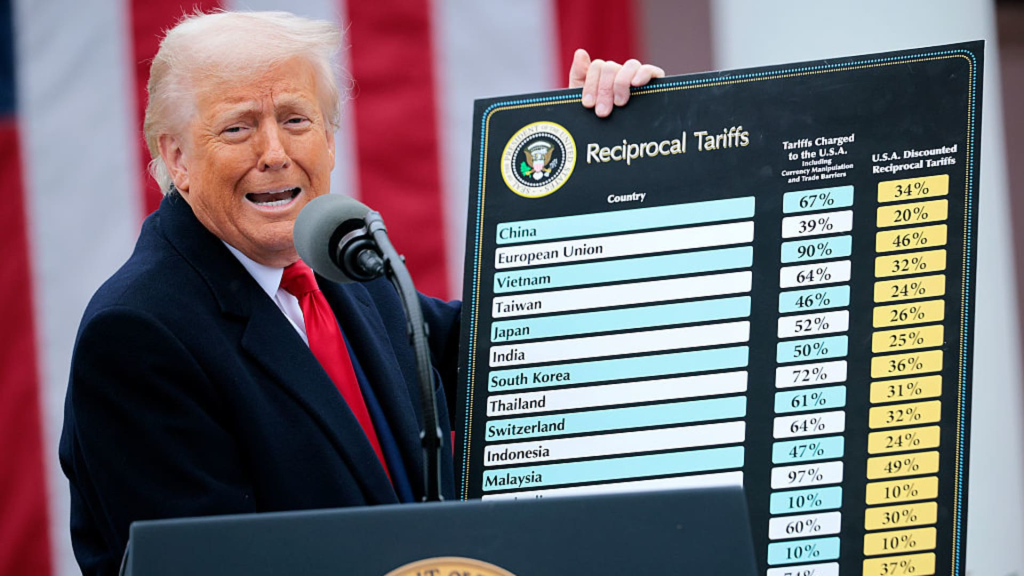A federal court delivered a significant setback to President Donald Trump’s economic initiatives on Wednesday, ruling that his implementation of reciprocal tariffs exceeded his legal authority.
The judges determined that the International Emergency Economic Powers Act (IEEPA) of 1977, which Trump cited to justify these tariffs, does not permit the sweeping duties that were put into effect last month.
“The Worldwide and Retaliatory Tariff Orders exceed any authority granted to the President by IEEPA to regulate importation by means of tariffs,” the ruling stated.
Furthermore, the judges indicated that the tariffs failed to address the specific threats outlined in the orders.
The lawsuit was filed on behalf of five U.S. businesses that rely on imports. The court declared that Trump’s tariff orders were “unlawful as to all,” meaning that the ruling applied broadly beyond just the plaintiffs’ companies, and highlighted that the remedy would not be limited or narrowly tailored.
The judges ordered that the challenged tariffs be “vacated and their operation permanently enjoined.”
Legal representatives for the White House may pursue an appeal, but the case and decision are likely to exert pressure on Trump’s economic plans.
On April 2, Trump announced the imposition of broad reciprocal tariffs on imports from various countries. However, just days later, on April 9, he declared a 90-day suspension while maintaining a 10% tariff on most goods entering the United States.
This is breaking news. Please refresh for updates.


























